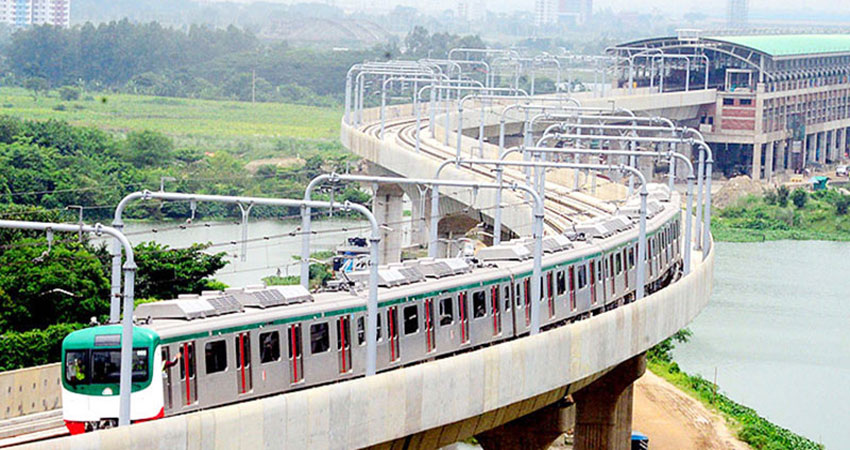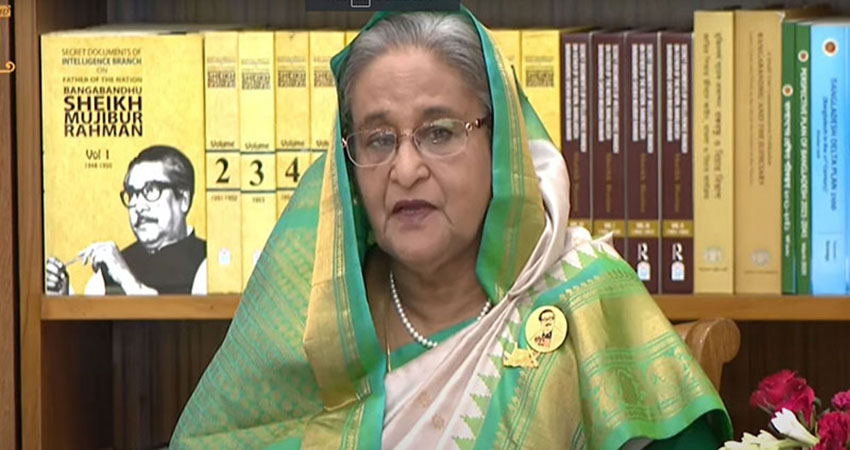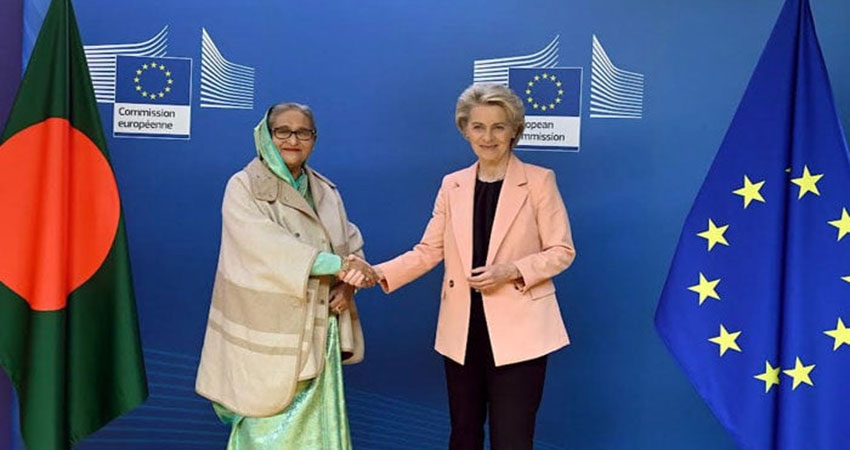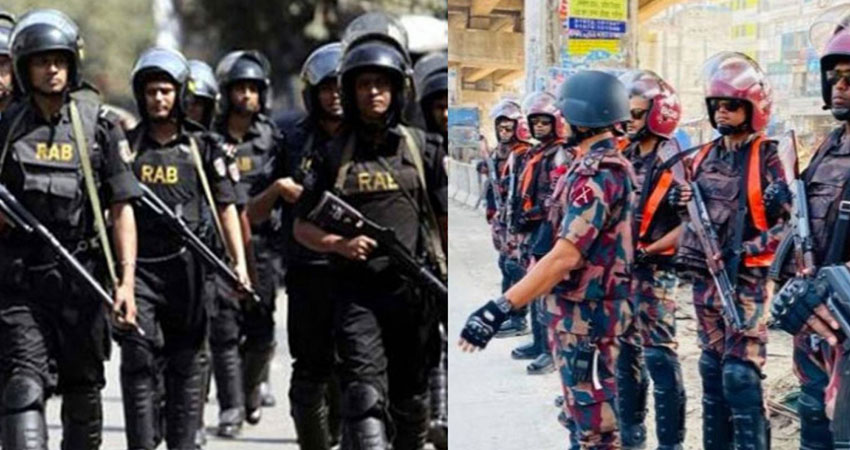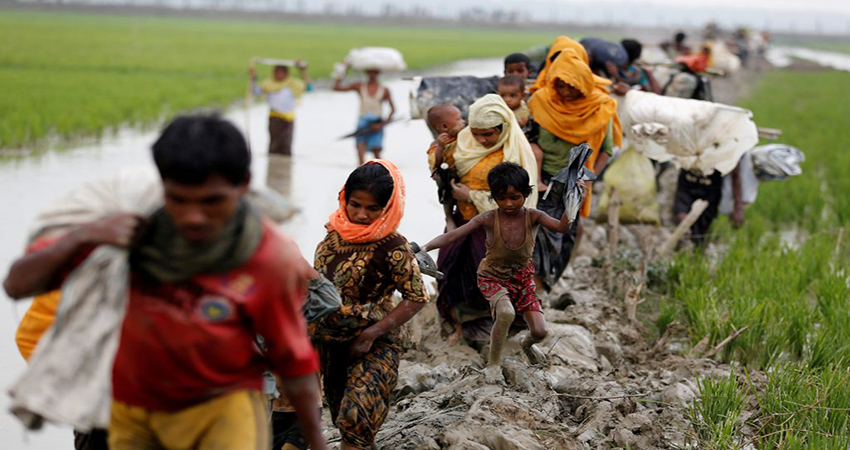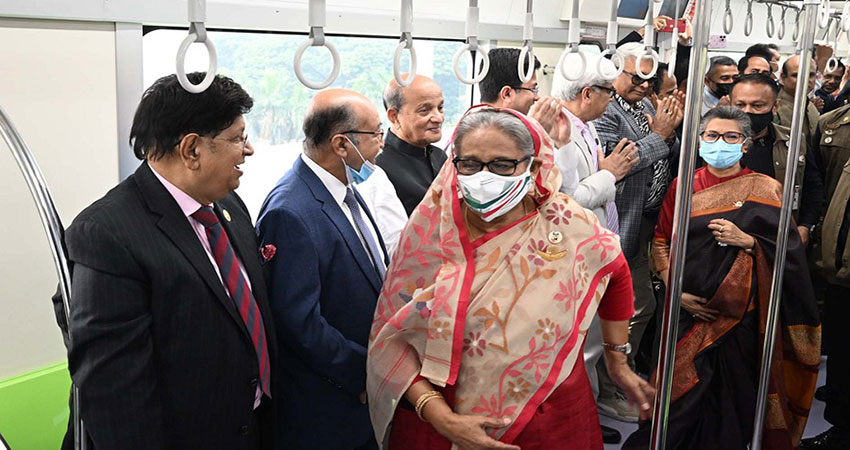The United States (US) will continue its policy of supporting a free and fair election in Bangladesh, the US Department of State said.
"As we have made clear many times, as I have made clear many times from this podium, we support free and fair elections in Bangladesh," Matthew Miller, spokesperson for the US Department of State said during its regular press briefing on Tuesday (8 August).
"We have made that clear publicly. We have made that clear in conversations with the Bangladeshi Government, and that will continue to be our policy," he added.
The US has said it does not see its desire to see free, fair, and inclusive elections in Bangladesh as interference in the country's internal affairs as deemed by Russia.
"I don't know why anyone would object to us calling for free and fair elections. And as I said in response to another question earlier, we don't consider it interference in internal affairs when other countries raise our elections process with us. We welcome those discussions as an opportunity to strengthen our democracy, and we don't know why any other countries would object," Miller said in July.
Six US Republican congressmen wrote to President Joe Biden on 25 May, calling for urgent actions to stop the "human rights abuses" by the Bangladesh government and "give the people of Bangladesh the best possible chance for free and fair parliamentary elections".
It was followed by six Members of the European Parliament writing to ask the EU High Representative Josep Borrell on 12 June to contribute to ensuring free, fair, and impartial general elections in Bangladesh.
On 13 June, six Democratic congressmen wrote to the US Secretary of State Anthony Blinken calling for actions to ensure free and fair parliamentary elections in Bangladesh.
The US on May 24 announced visa restrictions on individuals and their immediate family members if they are responsible for, or complicit in, undermining the democratic election process in Bangladesh.
It has reiterated its call for holding a free and fair election in Bangladesh several times.
"We have been consistent on the need for Bangladesh to hold free and fair elections," US National Security Council Coordinator for Strategic Communications John Kirby said during a media briefing at the White House in June.
US Under Secretary for Civilian Security, Democracy, and Human Rights Uzra Zeya during her visit to Bangladesh in July said the US looks forward to continued collaboration supportive of an inclusive and democratic Bangladesh, in which all can thrive.
She said she has heard a "strong commitment" from Prime Minister Sheikh Hasina and other ministers in support of free, fair and peaceful elections in Bangladesh.
Last week, the US Ambassador to Bangladesh Peter Haas said his country wants a conflict-free election in Bangladesh.
"US wants conflict-free elections. All political parties, civil society, media have a role to play in conducting peaceful elections. However, the political parties will determine the process by which the elections will be held," Haas told reporters following his meeting with leaders of the ruling Awami League at the party's central office on Thursday (3 August).
He s said that the US only supports democracy and does not favour any particular political party.
"As we have made clear many times, as I have made clear many times from this podium, we support free and fair elections in Bangladesh," Matthew Miller, spokesperson for the US Department of State said during its regular press briefing on Tuesday (8 August).
"We have made that clear publicly. We have made that clear in conversations with the Bangladeshi Government, and that will continue to be our policy," he added.
The US has said it does not see its desire to see free, fair, and inclusive elections in Bangladesh as interference in the country's internal affairs as deemed by Russia.
"I don't know why anyone would object to us calling for free and fair elections. And as I said in response to another question earlier, we don't consider it interference in internal affairs when other countries raise our elections process with us. We welcome those discussions as an opportunity to strengthen our democracy, and we don't know why any other countries would object," Miller said in July.
Six US Republican congressmen wrote to President Joe Biden on 25 May, calling for urgent actions to stop the "human rights abuses" by the Bangladesh government and "give the people of Bangladesh the best possible chance for free and fair parliamentary elections".
It was followed by six Members of the European Parliament writing to ask the EU High Representative Josep Borrell on 12 June to contribute to ensuring free, fair, and impartial general elections in Bangladesh.
On 13 June, six Democratic congressmen wrote to the US Secretary of State Anthony Blinken calling for actions to ensure free and fair parliamentary elections in Bangladesh.
The US on May 24 announced visa restrictions on individuals and their immediate family members if they are responsible for, or complicit in, undermining the democratic election process in Bangladesh.
It has reiterated its call for holding a free and fair election in Bangladesh several times.
"We have been consistent on the need for Bangladesh to hold free and fair elections," US National Security Council Coordinator for Strategic Communications John Kirby said during a media briefing at the White House in June.
US Under Secretary for Civilian Security, Democracy, and Human Rights Uzra Zeya during her visit to Bangladesh in July said the US looks forward to continued collaboration supportive of an inclusive and democratic Bangladesh, in which all can thrive.
She said she has heard a "strong commitment" from Prime Minister Sheikh Hasina and other ministers in support of free, fair and peaceful elections in Bangladesh.
Last week, the US Ambassador to Bangladesh Peter Haas said his country wants a conflict-free election in Bangladesh.
"US wants conflict-free elections. All political parties, civil society, media have a role to play in conducting peaceful elections. However, the political parties will determine the process by which the elections will be held," Haas told reporters following his meeting with leaders of the ruling Awami League at the party's central office on Thursday (3 August).
He s said that the US only supports democracy and does not favour any particular political party.













